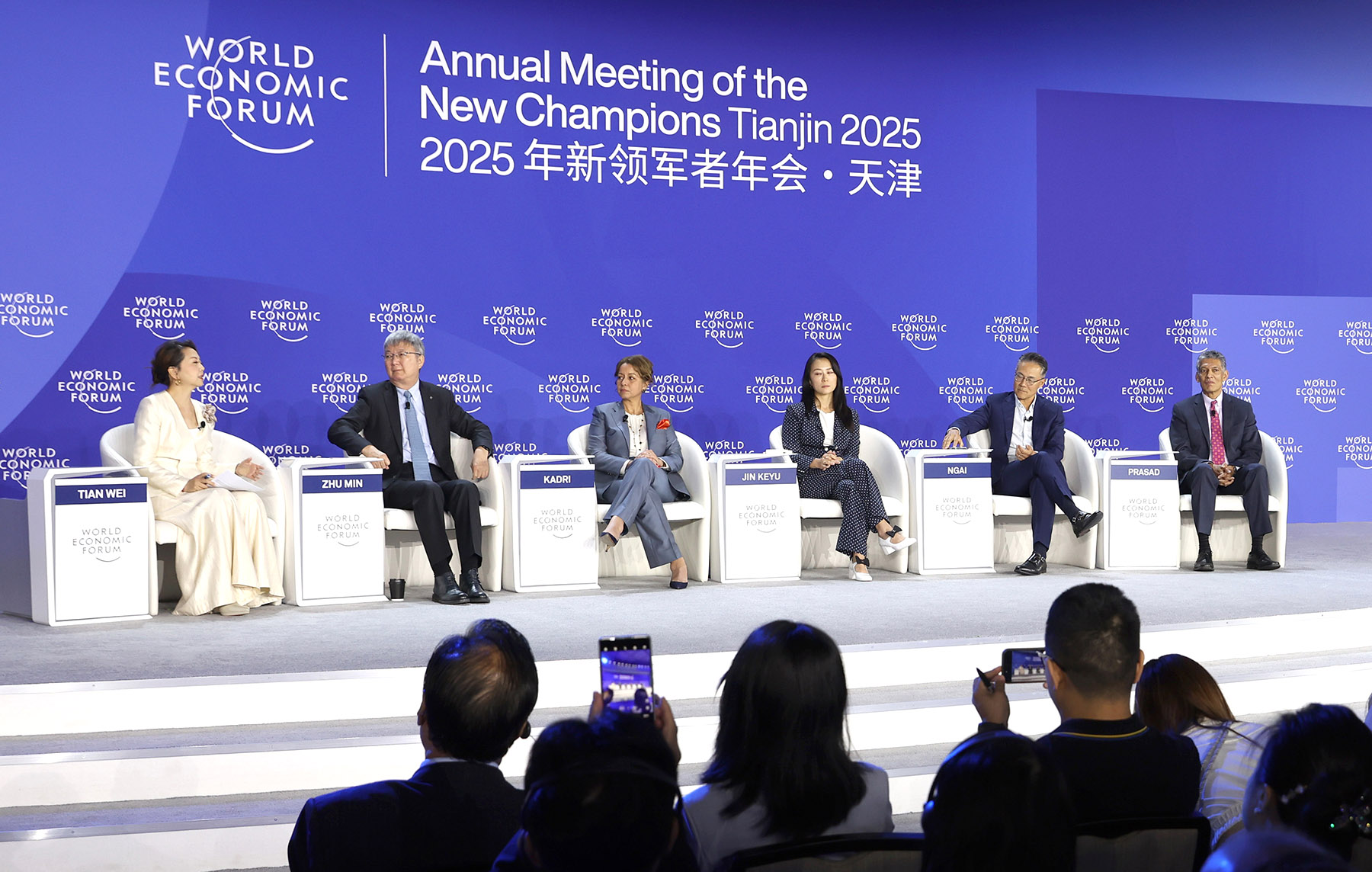Efforts to lift domestic consumption are laying foundation for sustainable growth

China's accelerating technological breakthroughs and efforts to stimulate domestic consumption are laying the foundation for sustainable economic growth as the country navigates global headwinds and transitions toward a high-income economy, experts and business leaders said on Wednesday.
Zhu Min, former deputy managing director of the International Monetary Fund, said China is entering a pivotal phase of innovation, underpinned by its large engineering talent pool and strong industrial foundation.
"With all the massive rich scenario China has in industry, in the next 24 months, I imagine we'll see a hundred DeepSeek-type software (products) emerge," Zhu said at a forum during the 16th Annual Meeting of the New Champions, also known as the Summer Davos, in Tianjin on Wednesday, referring to China's recent homegrown AI breakthroughs.
READ MORE: AI evolution promoted as key driver of productivity
"'AI plus' is coming in a big way. It will have a huge impact on the whole economy."
Jin Keyu, professor of finance at Hong Kong University of Science and Technology, echoed this sentiment, saying China's unique combination of advanced technology and large-scale manufacturing enables it to lead in "scale-based, cost-reductive, leading-edge innovation".
"Even if the US could be the leader in inventions and breakthroughs, production and diffusion of technology is just as, if not more, important for the benefit of the economy," Jin said, adding that with AI now being pushed into "every plausible sector "through China's "AI plus" program, "this is kind of awe-inspiring".
Yet she warned that innovation alone cannot propel China to prosperity. "China is never going to be a rich country unless it becomes a big consumer country," she said, pointing to rising opportunities in second and third-tier cities where talent and services are rapidly expanding.
Joe Ngai, chairman of McKinsey China, said Chinese consumers are adapting with agility to economic shifts. "Chinese consumers are very savvy. They are trading for the same quality, for a lower price. They are not sacrificing quality," Ngai said.
He emphasized that value-for-money consumption is rising, not declining.
"They're very savvy customers …the value-for-money segment has been growing and that growth is very, very inspiring."
Despite challenges ahead, experts remain broadly optimistic about China's 2025 growth outlook.
"I'm relatively confident that China will likely hit its around 5 percent growth target this year," said Liu Qiao, dean of Peking University's Guanghua School of Management.
ALSO READ: Summer Davos biz leaders upbeat on China
Liu cited the resilience in consumption and China's ample wiggle room for fiscal expansion, saying targeted fiscal tools such as special treasury bonds or modestly expanded deficits could counter uncertainties and spur demand.
From a financial perspective, optimism is also returning. "More and more investors are gaining confidence in China markets, both A-share and H-share markets," said Thomas Fang, head of China global markets at UBS.
Fang said the policy pivot since September has reassured markets. "They have this 'whatever it takes' policy … if it's not enough, they will add more," he said. "We want to see how the property downturn plays out and whether investor confidence continues to improve. It is a journey, but we are confident the policymakers have their fingers on the pulse."
Zhang Xiaoyan, associate dean at Tsinghua University's PBC School of Finance, pointed to recent homegrown AI breakthroughs like Deep-Seek as proof of China's innovation capacity. "The whole country is trying hard to boost the innovation environment."
Contact the writer at ouyangshijia@chinadaily.com.cn


